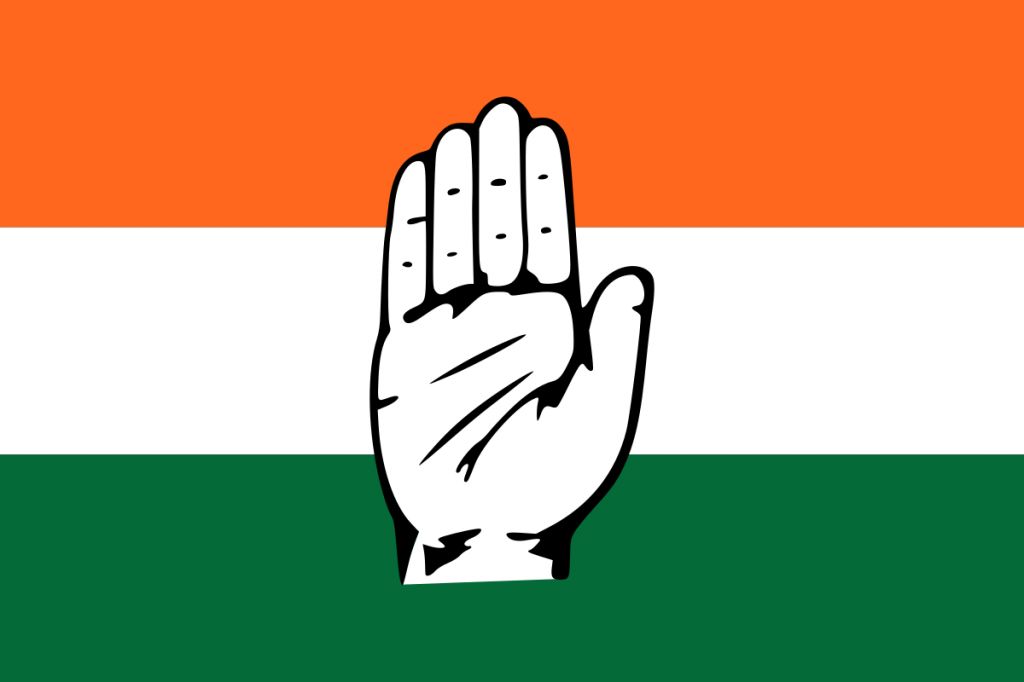
Srinagar: The people of Jammu and Kashmir delivered a decisive verdict in favour of the National Conference-Congress alliance. Srinagar had been abuzz with speculation about the large number of independents in the fray, whom the public largely perceived as proxies of the BJP. However, only eight out of over 200 Independents managed to secure a win.
The release of Rashid Engineer from jail proved to be a political miscalculation, as his party failed to win a single seat, with his brother, Khurshid Ahmed, unable to retain Langate—a seat Rashid had held for two consecutive terms. The NC, whose political future had been questioned just a few years ago, made a remarkable comeback, winning 42 seats, while Congress struggled, securing just six.
With 90 assembly seats in J&K, the NC-Congress alliance has now reached the majority mark of 48. PDP fades with 3 seats: The PDP faced a significant setback in these elections, winning only three seats, including Kupwara, where its candidate, Mir Mohammed Fayaz, defeated the high-profile Sajad Gani Lone. The PDP’s vote share has declined by a significant 28% since 2014. Mehbooba Mufti’s daughter, Ilteja, ran a high-profile campaign but was defeated by NC candidate Bashir Ahmed Shah Veeri in the Muftis' traditional stronghold of Bijbehara. Despite her efforts to distance herself from her mother’s politics, she could not overcome the credibility crisis faced by Mehbooba Mufti.
Mehbooba had often claimed that the PDP would play the role of kingmaker after the elections, but with the NC-Congress alliance touching the majority mark, they may not need PDP support. Touseef Shah, a PDP leader, declared confidently, “If the NC-Congress combine needs us, they can contact us,” but for now, that seems unlikely. Jammu blow for Cong: Of the 29 seats contested by Congress in the Jammu region, the party managed to secure only one. Their candidate, Iftikar Ahmed, defeated his nearest rival, Vibodh Gupta of the BJP, by a margin of 1,404 votes, with a total of 28,923 votes.
Many prominent Congress leaders were shown the exit door by the Jammu electorate. Among them, Congress Working President and former Deputy Chief Minister Tara Chand lost in Chhamb. Former minister Raman Bhalla was defeated in RS Pura, while Vikar Rasool Wani, another former minister, lost in Banihal. Two-time former MP Choudhary Lal Singh faced defeat in Basohli, and former ministers Manohar Lal Sharma in Billawar, Yogesh Sawhney in Jammu East, Mula Ram in Marh, and Mohammed Shabir Khan in Thanamandi were also unsuccessful in their respective constituencies.
A major setback for Congress was that none of their Hindu candidates in the Jammu region could withstand the BJP’s dominance. In contrast, two Hindu candidates — Surinder Choudhary from Nowshera and Arjun Singh Raju from Ramban — nominated by the National Conference, won. Surinder Choudhary’s victory was particularly notable, as he defeated the BJP state president, Ravinder Raina.
The BJP swept the Jammu region, winning 29 seats, though it failed to secure a single seat in the Valley. Devendra Singh Rana, brother of Union Minister Jitendra Singh, won from Nagrota in Jammu South, while two-time Congress MLA Raman Bhalla lost from RS Pura. BJP candidate Mohan Lal won the prestigious Akhnoor seat.
NC Proves Its Mettle In The Valley
In the Valley, it was a day of high emotion for the NC, as their leader, Omar Abdullah, won from both his family bastion of Ganderbal and from Budgam. A critical loss in the Lok Sabha elections from Baramulla to Engineer Rashid had taught the younger Abdullah to remain grounded. In Ganderbal, he was seen visiting households, urging his constituents to vote for him. Following redefined constituencies, Congress candidate Iftkar Ahmed won Rajouri, while Peerzada Mohammed Syed of Congress took the Anantnag seat, both by margins of just over 1,000 votes.
Five Muslim candidates from Congress won in the Jammu region, prompting the BJP IT cell head to remark sarcastically, “The Congress is the Muslim League of India. It doesn’t have a single winning Hindu candidate.” Haseeb Drabu, economist and former finance minister of J&K during the Mufti-BJP coalition, observed that the BJP’s strategy throughout the election was to fragment votes.
He noted, “The system was designed for instability, with the number of seats disproportionately increased. The aim was to convert the demographic majority into an electoral majority.” However, these efforts did not yield the anticipated results for the BJP, as the nine new ST constituencies created after delimitation did not favour them. Despite efforts to win over Pahari Muslims and other tribes, the NC-Congress alliance secured these seats.
The NC won Kangan, Kokernag, Mendhar, Gulabgarh, Gurez, and Budhal, while the two Independents won the Thanamandi and Surankot seats. Omar Abdullah is expected to become the next Chief Minister, though he will inherit a challenging mandate. During his earlier tenure, he managed to maintain a cordial relationship with Congress Prime Minister Manmohan Singh. This time, however, he will have to negotiate with Prime Minister Modi and Home Minister Amit Shah, neither of whom has close ties with the Abdullah family. Upon taking office, he is likely to demand the restoration of statehood, and it remains to be seen how the BJP leadership will respond. Abdullah’s relationship with Lt Governor Manoj Sinha is even more tenuous. At one point, he publicly stated that, following the reorganisation act, the Chief Minister did not even have the power to appoint a peon.
The results have met the BJP’s expectations, as the UT has become polarised along religious lines, with the Hindu population overwhelmingly supporting the BJP, while the Muslim-majority region voted predominantly for Muslim candidates. Omar will need all his political acumen to build a working relationship with the Centre. He must also engage with the Hindus in the Jammu region to avoid being labelled a pro-Muslim party.